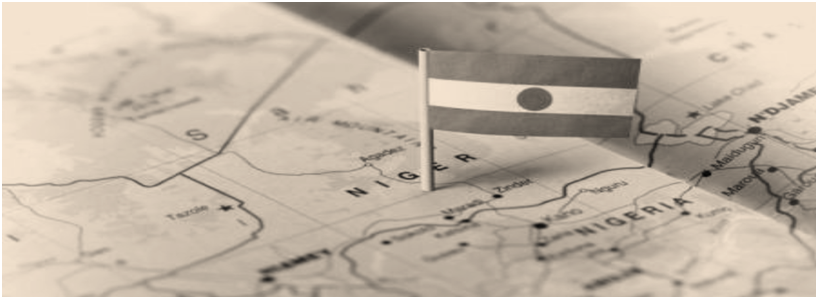
Weekly Highlights
- A meeting of the RIFU, against terrorism and crime, was held in Niamey
- Macron: Continuation of the military operation “Barkhane” to a “clarification” from the Sahel countries
- US donates military equipment to FDS of Niger
- Niger exchange rate – Exchange rates West African CFA francUSD = 592.948 XOF XOF= 0.00168649 US
EXECUTIVE SUMMARY
A meeting of the RIFU, against terrorism and crime, was held in Niamey
The Management Committee of the Regional Information Fusion Unit (RIFU), held its seventh meeting on Thursday in the capital of Niger. This committee is dedicated to the fight against terrorism and transnational crime in the Sahel. The RIFU was created in 2014, its mission is the fusion, analysis and dissemination of intelligence for the benefit of member countries, strategic partners and the multinational mixed force. Delegates from Niger, Nigeria, Benin and Chad, as well as technical and financial partners, met to discuss working documents and adopt strategies. adapted to better combat terrorism and crime in the region. According to General Lawal Chekou Koré, head of the General Directorate of Documentation and External Security of Niger (DGDSE), security challenges are increasing, and the still high terrorist threat is being maintained by various resilient terrorist factions.
Macron: Continuation of the military operation “Barkhane” to a “clarification” from the Sahel countries
The President of the Republic, Emmanuel Macron, conditioned Wednesday, December 4, the continuation of the operation “Barkhane” in the Sahel-Saharan band to a clarification of the G5 Sahel – Mauritania, Mali, Burkina Faso, Niger and Chad – with regard to France’s military presence in the region, against the backdrop of “anti-French movements”. “I expect them to clarify and formalize their demands on France and the international community,” said the head of state at a press conference given at the end of NATO Summit, Watford, near London.
US donates military equipment to FDS of Niger
The Defense Minister Issoufou Katambé has received, this Thursday, December 05, 2019, a gift of mileage equipment offered by the United States of America to the Nigerian contingents engaged in the fight against terrorism in the Sahel and within the force. G5 sahel. This donation consists of Thirteen (13) Mamba armored vehicles; two (02) basic HF stations; nine (09) Harris HF radios on men’s backs; six (06) Harris HF on vehicle; seventy-one (71) Motorola VHF and seventy-one (71) GPS.
The pyramid of Zinder and the sphinx, a scientific reality
For a long time, people were skeptical about Master Souley’s great discovery on Dan Baki’s pyramid. Today, a team of American scientists, led by Dr. Robert M. Schoch, Ph.D. Institute for the Study of the Origins of Civilization (ISOC), College of General Studies, Boston University and Dr. Sidney L Davis, Jr. Nigerian Association of African World Sciences (NAGAS), Boston, Massachusetts, confirms that Zinder’s pyramid is beautiful and real.
In Niger, Fulani farmers hit hard by climate change
One of the last great nomadic peoples on the planet, the Fulani face countless challenges that affect the Sahel and directly threaten their way of life: the population explosion and the struggle for land, religious extremism, but also and especially global warming. Accustomed to move in an inhospitable environment, the Fulani have borrowed for centuries with their herds the same roads: they are today more than 35 million, scattered in fifteen countries, from the Atlantic coast of Senegal to the dense forest of the Central. While they have always adapted to extreme temperatures and lack of water, pastoralists now face longer, more severe droughts, more severe storms and catastrophic floods. Niger, where more than 80% of the population lives from agriculture and especially livestock, is the Sahel country most affected by the effects of climate change.
USEFUL INFORMATION
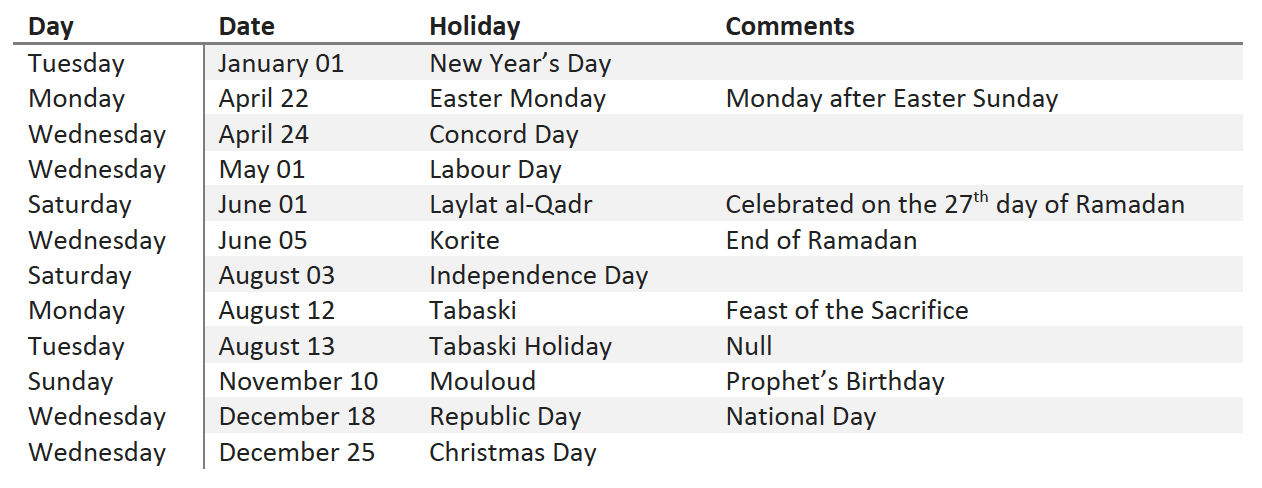
Exchange rates West African CFA franc
According to our most recent information (09th Dec 2019) the West African CFA franc has the following exchange rates.
The exchange rate from your own bank or credit card company will differ somewhat from the exchange rates as mentioned above. Your bank or credit card company might also apply additional international charges.
| USD = 592.948 XOF | XOF= 0.00168649 USD |
| EUR = 655.957 XOF | XOF= 0.00152449 EUR |
| **As at 09 Dec 2019 |
Vaccinations required to enter the country
Proof of vaccination against yellow fever is required over one year of age entering the country. The government of Niger recommends vaccine for travellers departing Niger.
Routine Vaccinations
Hepatitis A: A vaccine is available for anyone over one year of age. The vaccine may not be effective for certain people, e.g. those born before 1945 and who lived as a child in a developing country and/or have a past history of jaundice (icterus). These people can instead get a shot of immune globulin (IG) to boost their immunity against the disease.
- Hepatitis B: A vaccine is available for children at least two months old.
- Diphtheria-Tetanus-Polio: A booster shot should be administered if necessary (once every ten years
SPECIAL REPORT – CHOLERA
Cholera is an infectious disease that causes severe watery diarrhoea, which can lead to dehydration and even death if untreated. It is caused by eating food or drinking water contaminated with a bacterium called Vibrio cholerae.
Cholera was prevalent in the U.S. in the 1800s, before modern water and sewage treatment systems eliminated its spread by contaminated water. Only about 10 cases of cholera are reported each year in the U.S. and half of these are acquired abroad. Rarely, contaminated seafood has caused cholera outbreaks in the U.S. However, cholera outbreaks are still a serious problem in other parts of the world. At least 150,000 cases are reported to the World Health Organization each year.
The disease is most common in places with poor sanitation, crowding, war, and famine. Common locations include parts of Africa, south Asia, and Latin America. If you are traveling to one of those areas, knowing the following cholera facts can help protect you and your family.
Cholera Causes
Vibrio cholerae, the bacterium that causes cholera, is usually found in food or water contaminated by feces from a person with the infection. Common sources include:
- Municipal water supplies
- Ice made from municipal water
- Foods and drinks sold by street vendors
- Vegetables grown with water containing human wastes
- Raw or undercooked fish and seafood caught in waters polluted with sewage
Signs and symptoms of dehydration include:
- Rapidheart rate
- Loss ofskin elasticity (the ability to return to original position quickly if pinched)
- Dry mucous membranes, including the inside of themouth, throat, nose, and eyelids
- Low blood pressure
- Thirst
- Muscle cramps
If not treated, dehydration can lead to shock and death in a matter of hours.
Cholera Treatment and Prevention
Although there is a vaccine against cholera, the CDC and World Health Organization don’t normally recommend it, because it may not protect up to half of the people who receive it and it lasts only a few months. However, you can protect yourself and your family by using only water that has been boiled, water that has been chemically disinfected, or bottled water. Be sure to use the bottled, boiled, or chemically disinfected water for the following purposes:
- Drinking
- Preparing food or drinks
- Making ice
- Brushing yourteeth
- Washing your face and hands
- Washing dishes and utensils that you use to eat or prepare food
- Washingfruits and vegetables
To disinfect your own water, boil it for one minute (or 3 minutes at higher elevations) or filter it and use a commercial chemical disinfectant. You should also avoid raw foods, including the following:
- Unpeeledfruits and vegetables
- Unpasteurized milk and milk products
- Raw or undercooked meat or shellfish
- Fish caught in tropical reefs, which may be contaminated
If you develop severe, watery diarrhoea and vomiting — particularly after eating raw shellfish or traveling to a country where cholera is epidemic — seek medical help immediately. Cholera is highly treatable, but because dehydration can happen quickly, it’s important to get cholera treatment right away.
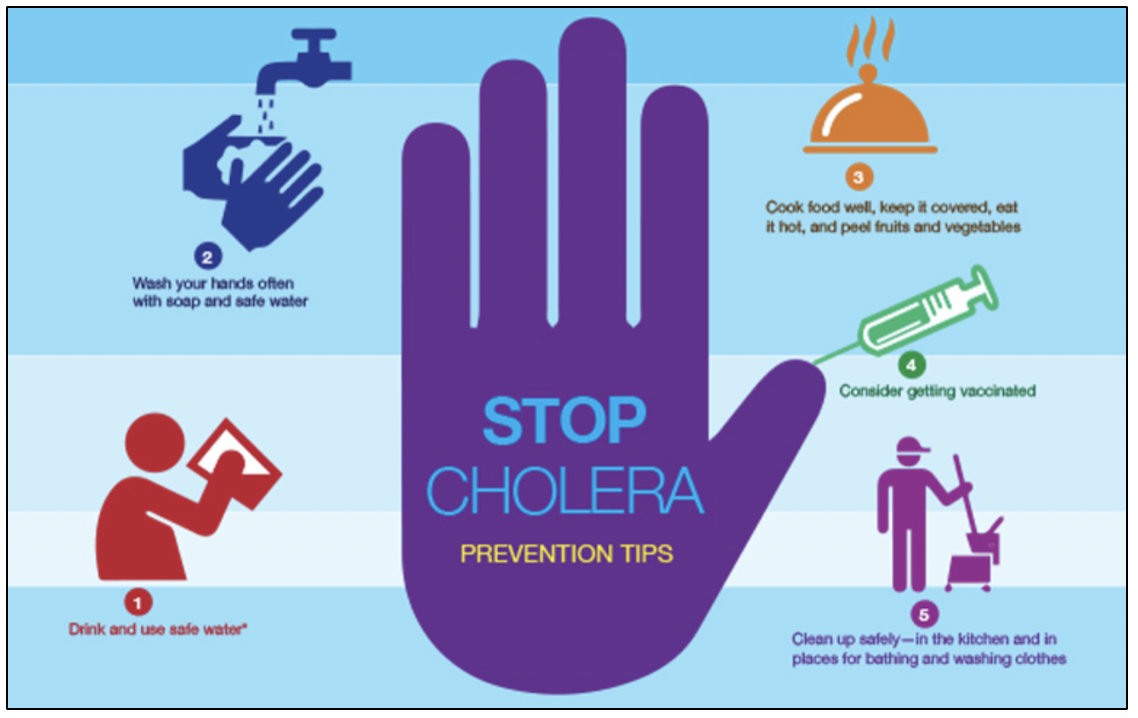
NIGER SECURITY & RISK LEVELS
Operational Outlook
Escalating jihadist attacks and state-of-emergency in parts of western and south-eastern Niger complicate the operational environment, already hindered by limited institutional capacity, inadequate infrastructure, strikes, and corruption. President Issoufou wants to boost the private sector, with improved road infrastructure a priority of the government’s 2017-21 development plan.
Terrorism
The Islamic State in the Greater Sahara (ISGS) has bases in western Niger, and co-operation with Al-Qaeda-linked groups increases attack risks in the capital, Niamey. A likely terrorist against a police post in a Niamey suburb in June 2019 suggests militants are closer to realizing this aspiration. There is an on-going state-of-emergency in western Tahoua and Tillaberi regions, as well as southern eastern Diffa, where jihadist groups are particularly active. Kidnap risks are high near borders with Burkino Faso, Mali, and Nigeria. Jihadist targets are likely to include transport hubs, mining sites, the military, diplomatic assets, hotels, and government buildings. According to credible sources, terrorist groups continue plotting attacks in Niger and may attack with little or no warning, targeting foreign and/or local government facilities and areas frequented by large crowds. Vigilance and security measures in Niger remain heightened due to threats posed by extremist groups.
Actions to Take:
- Expect additional checkpoints and increased security throughout the country.
- Review your personal security plans.
- Be aware of your surroundings.
- Stay alert in locations frequented by Westerners. Be particularly vigilant around places of worship and locations with large crowds.
- Monitor local media for updates.

NIGER INCIDENT MAPPING
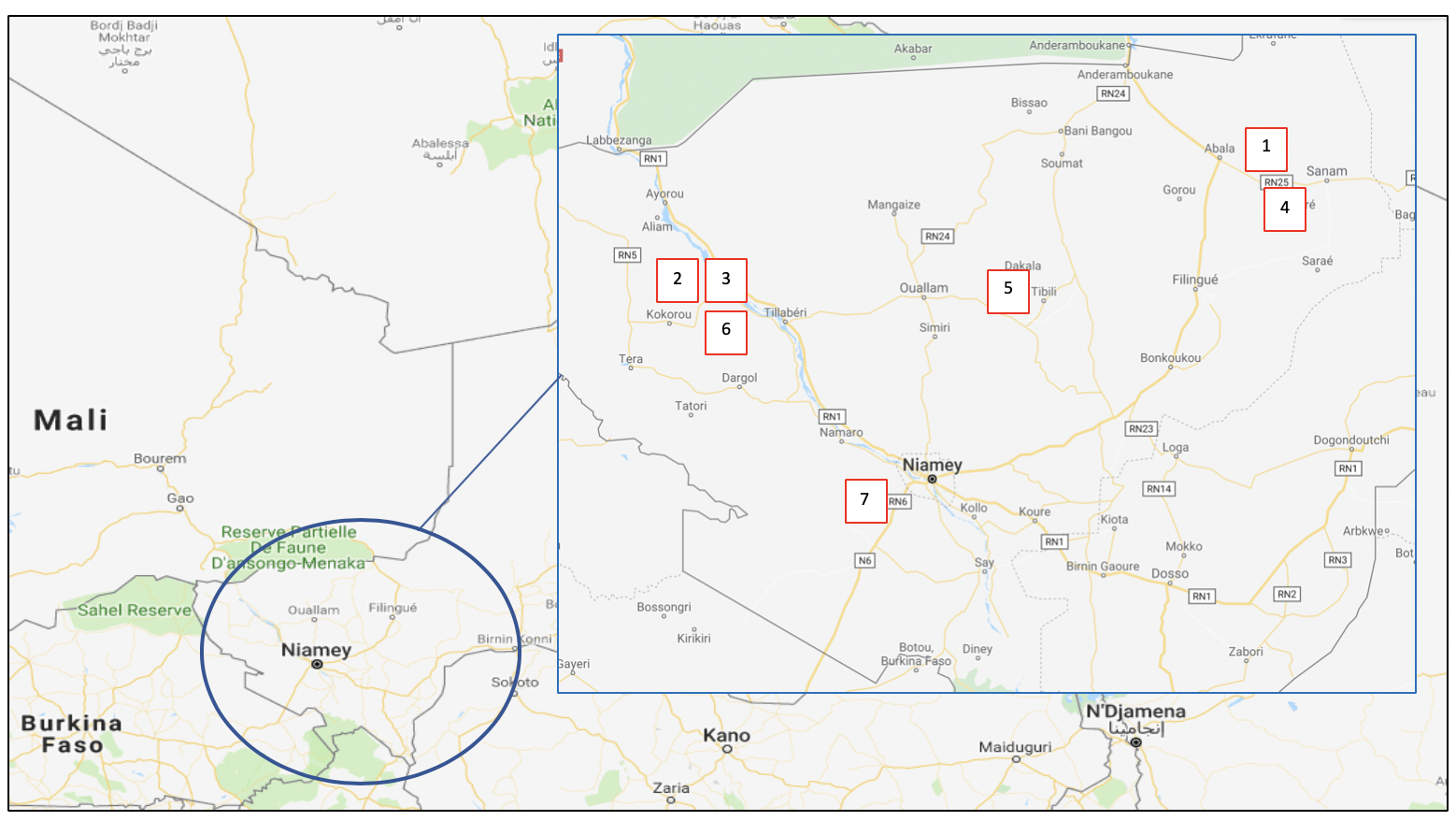
NIGER INCIDENTS IN DETAIL
$ 100 million from WAEMU to fight terrorism in the community space
The Head of State SE. Issoufou Mahamadou returned from Dakar to Senegal, where he took part in the International Conference on “Sustainable Development and Sustainable Debt” and at the Extraordinary Summit of Heads of State and Government of the West African Economic and Monetary Union. (UEMOA).
At the end of this summit held last Tuesday, December 3, the leaders of UEMOA including SE. Issoufou Mahamadou, have decided on an “immediate contribution of 100 million US dollars to the three G5 Sahel front-line country members to make an urgent contribution to the fight against terrorism in the community space”. In the final communiqué sanctioning the Extraordinary Session, the Heads of State and Government of the Union indicated that this contribution is part of the commitment made by UEMOA to participate for 500 million dollars. US dollars to finance the ECOWAS Action Plan to Combat Terrorism in the ECOWAS Area over the 2020-2024 Period.
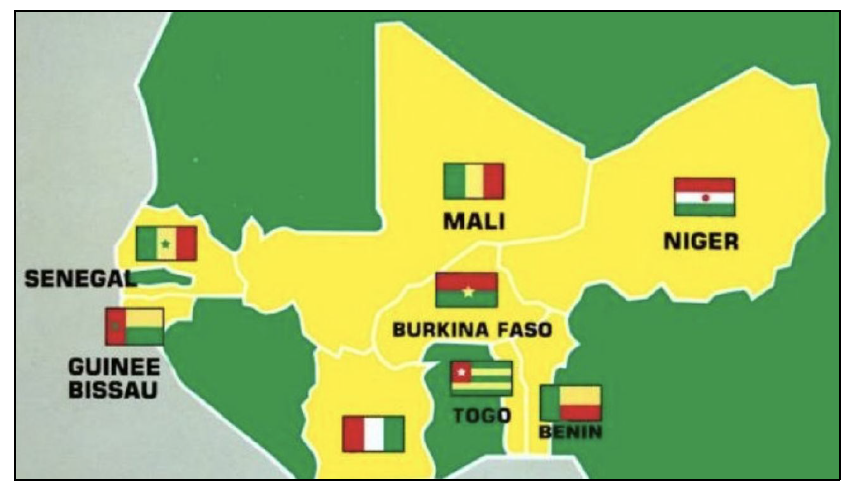
The Conference chaired by the President of the Republic of Côte d’Ivoire HE Mr. Alassane Dramane Ouattara, adopted a Regional Security Fund for the mobilization of substantial financial resources over the medium term to continue the implementation of the Action Plan, the statement said. It expresses its deep concern at the recurrence of terrorist attacks in Burkina Faso, Mali and Niger. Stressing the importance of promoting a concerted and comprehensive approach to meeting the security challenge, the conference welcomes the Union’s determination to face growing insecurity.
In an opening speech at this conference on Tuesday morning, President Alassane Ouattara said that this meeting is being held “in a context where, in spite of the economic gains we have made, threats to peace and security are becoming more and more urgent. The Ivorian Head of State stressed the importance of solidarity among the EU Member States and welcomed the initiatives taken to make the G5 Sahel operational. But these initiatives continue to face the funding challenge, which makes it necessary to find alternative and sustainable ways of financing to address these challenges, he said.
A meeting of the RIFU, against terrorism and crime, was held in Niamey
The Management Committee of the Regional Information Fusion Unit (RIFU), held its seventh meeting on Thursday in the capital of Niger. This committee is dedicated to the fight against terrorism and transnational crime in the Sahel. The RIFU was created in 2014, its mission is the fusion, analysis and dissemination of intelligence for the benefit of member countries, strategic partners and the multinational mixed force.
Delegates from Niger, Nigeria, Benin and Chad, as well as technical and financial partners, met to discuss working documents and adopt strategies. adapted to better combat terrorism and crime in the region. According to General Lawal Chekou Koré, head of the Directorate General of Documentation and External Security of Niger (DGDSE), security challenges are increasing, and the still high terrorist threat is being maintained by various resilient terrorist factions. “In this context, the RIFU is an illustration of a desire to pool as a platform for exchange and sharing of information”.
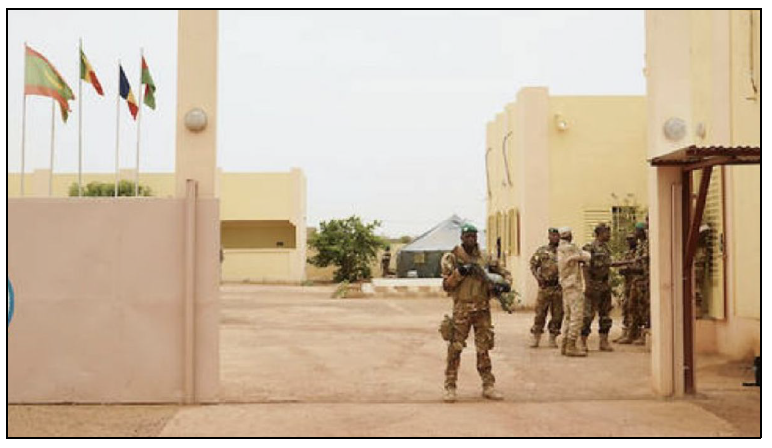
In Niger, what we can testify to is that the year 2019 was the year in which our army won the most victories against Boko Haram, the year when we warned the most attacks because of the information that we could have on the actors, “said Mohamed Bazoum, Minister of the Interior and Public Security of Niger. Since 2009, several countries in the Sahelian region, including Niger, have suffered the deadly attacks perpetrated by the Nigerian Islamist group Boko Haram, groups close to al-Qaeda in the Islamic Maghreb (Aqmi), Ansar Dine and rebel movements based for nearly five years in northern Mali or various armed groups that control the south of Libya since the overthrow in 2011 Moamer Kadhafi.